How to analyze the fluorescence intensity of cells by using Image J?
Today we're going to talk about Image J’s use in immunohistochemistry. Image J software is completely free and easy to download. As a scientific researcher, we face all kinds of maddening experimental data every day. If we can skillfully use Image J, it will undoubtedly be very helpful for us to analyze the experimental results.
Now let's introduce how to analyze immunohistochemistry by Image J. Here is an example:
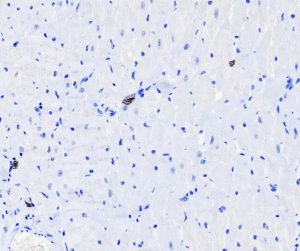
Step 1: Import Image: Open Image J, File→Open: Open the Image to be measured

Step 2: Transform the Image format: Image→Type→RGB Stack
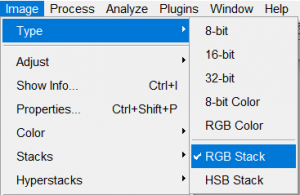
At this time, a scroll bar appears at the bottom of the picture. Files 1, 2, and 3 correspond to red, green, and blue respectively. Select relatively clear pictures for subsequent analysis, and choose file 2 here.

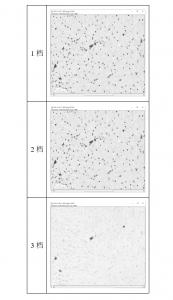
Step 3: Mark the stained area:Image→Adjust→Threshold

The Threshold interface appears. Slide the two slider below to change the marked area.
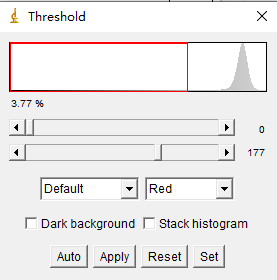
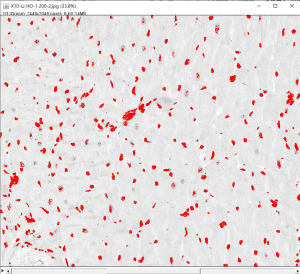
Step 4: Set measurement parameters: Analyze→Set Measurements
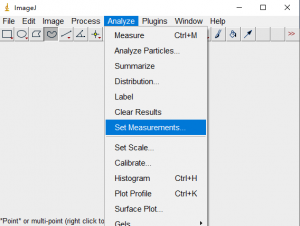
In the displayed measurement parameter setting option box, select the required measurement parameter: Area (the Area of the selected Area); Mean (Mean gray value of the selected area of the box); IntDen (Integrated Density) (total fluorescence intensity in the selected area); Area Fraction. Click OK to confirm.
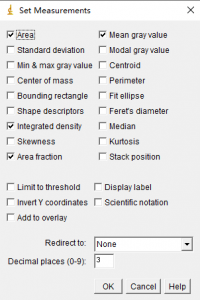
Step 5: Analysis results: Analyze→Analyze Particles, tick tick the corresponding column as shown in the picture
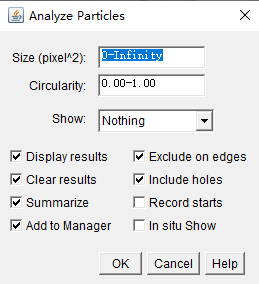
Click OK after the check is completed, and select No in the dialog box.

This prompt is whether to display all the picture results of the three files. We only need to select the second file here.
Results:

The percentage of positive area was 3.658%.
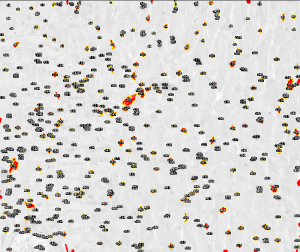
Then there is the analysis of the individual in the picture ↓↓↓
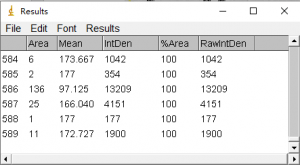
Step 6: Organize the data, Edit→Copy, you can Copy the data to Excel
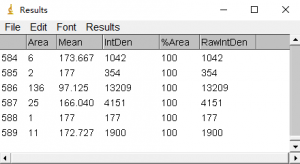
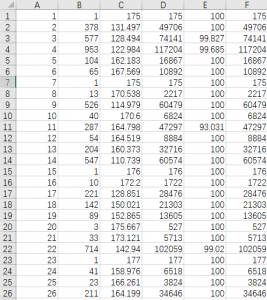
All the data can be analyzed below.
Above, this is the share of immunohistochemical analysis using Image J. At last, wish you all a smooth experiment.
Recommended products for immunohistochemistry
| CAT. | Name |
| A01010 | Anti-β-Actin Mouse Monoclonal Antibody (1C7) |
| A01011 | Anti-beta Actin Rabbit Polyclonal Antibody |
| A01020 | Anti-GAPDH Mouse Monoclonal Antibody (2B5) |
| A01021 | Anti-GAPDH Rabbit Polyclonal Antibody |
| A01030 | Anti-β-Tubulin Mouse Monoclonal Antibody (3G6) |
| A01040 | Anti-PCNA Mouse Monoclonal Antibody (1D7) |
| A01040HRP | Anti-PCNA Mouse Monoclonal Antibody (1D7), HRP Conjugated |
| A01070 | Anti-Histone H3 Mouse Monoclonal Antibody (2D10) |
| A01090 | Anti-Lamin B1 Monoclonal Antibody (15T1) |

Inspire your cell and protein
Abbkine focuses on the fields of proteinology and cytology, and is committed to the innovation and research and development of various antibodies, proteins, analytical reagents and kits, in order to become a key promoter in the development of life science research, drug development and other fields. We provide you with the favorite products of protein and immune research users, from basic immunological products, such as protein extraction and quantification, to internal reference label antibodies, primary antibodies and secondary antibodies for immunological experiments; the favorite products of cell research users, from Dyes and kits for detecting cell status, organelle extraction kits, cell substructure staining and tracking and cell metabolism detection products, to cytokine and protein detection kits for cell culture, just to help your research career !











